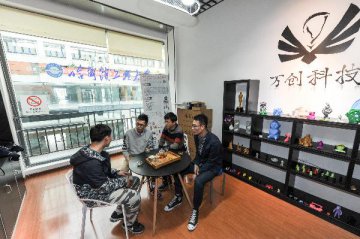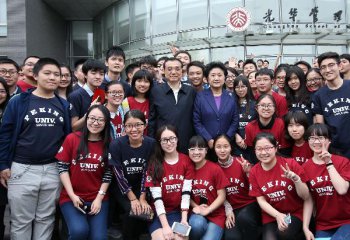
Minutes after midnight on Saturday, Chen Sheng, a businessman from the southern city of Wenzhou, got a value-added tax (VAT) invoice after paying his bill at a hotel in Beijing.
To his surprise, the invoice was the very first issued in China after the country replaced all business tax with VAT on May 1. "This is a historic moment," said Wang Jun, director of the State Administration of Taxation, who was in the hotel lobby for the occasion.
Chen Sheng found that two items were listed on the invoice: A fee of 547.17 yuan (84.55 U.S. dollars) for one night's accommodation and VAT of 32.83 yuan. VAT refers to a tax levied on the difference between a commodity's price before taxes and its production cost. Business tax refers to a levy on a business's gross revenues.
VAT is favored partly because it can reduce double taxation. Following regional experiments in selected industries since the beginning of 2012, VAT reform was gradually rolled out in more regions and sectors. "With the policy being applied to the last four industries including construction, real estate, finance and consumer services on Sunday, we have made a monumental achievement in tax reform," said Beijing Mayor Wang Anshun.
As of 12:05 a.m., 1,598 VAT invoices had been issued to 1,386 taxpayers across the country, according to the State Administration of Taxation. In Tianjin, a resident surnamed Qian got his invoice in the very early hours of Sunday for the sale of a flat worth about 400,000 yuan. He paid 19,000 yuan in VAT, with tax reform altogether saving him around 1,800 yuan.
The reform has reduced tax burdens for residents and companies by 640 billion yuan over the past four years, benefiting 5.92 million households, Wang Jun said. With the expansion of the tax reform to the last four industries, more than 500 billion yuan of taxes will be cut this year.
Easing burdens in the service industry will facilitate industrial restructuring, Wang Jun said, adding that a unified taxation system will help foster a fairer environment for businesses. The reform will also help with the government's aim of stimulating entrepreneurship and supporting private enterprises and small firms, which play a central role in job creation, according to Wang.
























Latest comments